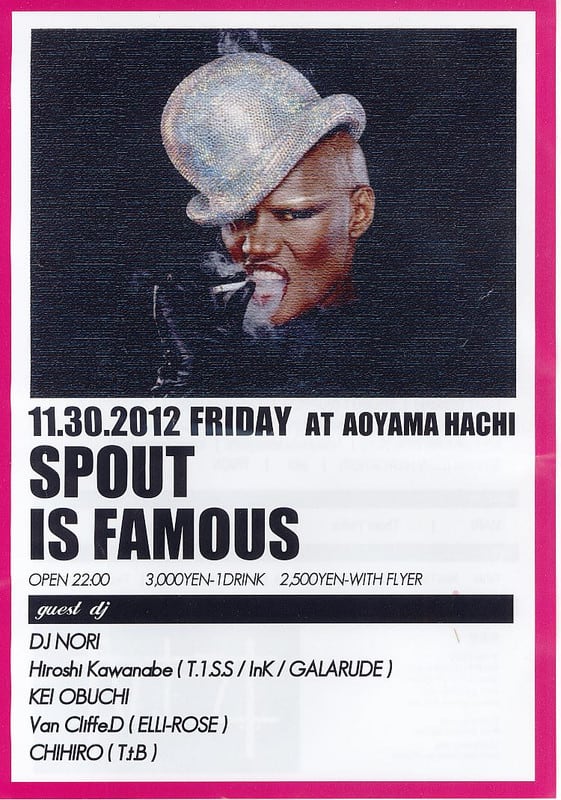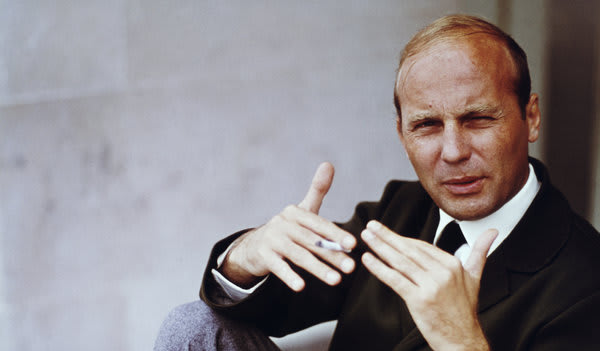ヘンツェがなくなったのは先週の土曜。
新作バレエの初演で寄っていたドレスデンで亡くなったそうです。86歳。
亡くなった原因は明らかにされていないみたいですね。
記事詳細は以下をどうぞ。
.
Hans Werner Henze, a prolific German composer who came of age in the Nazi era and grew estranged from his country while gaining renown for richly imaginative operas and orchestral works, died on Saturday in Dresden, Germany, where he was due to attend the premiere that evening of a ballet set to one of his scores. He was 86.
His longtime publisher, Schott Music, announced his death in a statement. No cause was specified, and no further details were provided.
Born into a European generation that wanted to make a fresh start at the end of World War II, Mr. Henze (pronounced HEN-tzuh) did so without wholly negating the past. He wanted a new music that would carry with it the emotion, the opulence and the lyricism of the Romantic era, even if those elements now had to be fought for. Separating himself from the avant-garde, he devoted himself to genres many of his colleagues regarded as outmoded: opera, song, the symphony.
By the early 1960s Mr. Henze was an international figure with enthusiastic admirers in the United States. His Fifth Symphony was commissioned by the New York Philharmonic, which gave the work’s premiere in 1963, with Leonard Bernstein conducting. More than 40 years later, the orchestra took part in commissioning one of Mr. Henze’s last orchestral works, the tone poem “Sebastian Dreaming.”
He maintained relationships with other American institutions as well, including the Boston Symphony, which commissioned his Eighth Symphony (1992-93), and the Tanglewood Music Festival, where he was composer-in-residence in 1988.
His music expressed passionate but mixed feelings about his German heritage. His Nazi-era childhood alone would have produced, at the least, ambivalence about that heritage, but his homosexuality only further estranged him, particularly from the bourgeois West German society of the immediate postwar years. And he found little sympathy at home for his embrace of the Romantic past.
He had to escape, and in 1953 he abruptly left for Italy. But he went on writing operas for theaters in Germany, where he was far more popular than any other composer of his time. That success brought him material comfort, and he came to give a fair physical impression of the kind of well-to-do burgher he might well have feared and despised in his youth: tight-suited, bald, energetic even when still. What failed to fit this image of stiff propriety was his unfailing charm, his sardonic sense of humor and his fondness for his many friends.
As he grew older, the matter of Germany became increasingly important to his music. Having written his Cuban-inflected Sixth Symphony (1969) ? produced during a period when he spent a great deal of time in Cuba ? he composed his Seventh (1983-84) for the Berlin Philharmonic, taking Beethoven as his model. Again with Beethoven in mind and again writing for the Berlin Philharmonic, he made his Ninth a choral symphony ? and a drama ? telling a story of desperation and hope set during the Nazi epoch.
Hans Werner Henze was born on July 1, 1926, in Gutersloh, Westphalia, in northwest Germany. After army service in 1944 and 1945 he studied with Wolfgang Fortner at the Heidelberg Institute for Church Music and with the French composer Rene Leibowitz. He soon became acquainted with the modern music that had been banned by the Nazis ? notably Stravinsky and Berg, as well as jazz ? and gained the means to create a sprightly style that carried him through an abundant youthful output. By the time he was 25 he had written three symphonies, several ballets and his first full-length opera, ”Boulevard Solitude” (1951).
In his Second String Quartet (1952) he drew close to his more avant-garde contemporaries, but the moment quickly passed. The next year he left his post as music director of the Wiesbaden State Theater to settle on the Bay of Naples, and his music at once became luxurious and frankly emotional, as exemplified by his fairy-tale opera “King Stag,” first performed in Berlin in 1956.
It was an exultant period, which also brought forth his Fourth Symphony (1955); the full-length ballet “Ondine” (1956-57), produced with choreography by Frederick Ashton at Covent Garden; “Nocturnes and Arias,” for soprano and orchestra (1957); and “Chamber Music,” for tenor, guitar and octet (1958).
In his next opera, “The Prince of Homburg,” first produced in Hamburg in 1960, he caricatured German militarism within a style fashioned after the bel canto operas of Bellini and Donizetti. After this came “Elegy for Young Lovers,” to a libretto by W. H. Auden and Chester Kallman, about a poet’s use of his family and acquaintances in his art. The story’s alpine setting offered Mr. Henze the opportunity for glistening, radiant music, scored for a chamber orchestra. The work had its first performance in Schwetzingen, Germany, in 1961, and has been more widely seen than any of the composer’s other operas. It was presented by City Opera in 1973 ? though that production remains the only professional staging of an opera by Mr. Henze in New York.
Working again with Auden and Kallman, he went on to a much bigger operatic project, “The Bassarids,” a remake of Euripides’ “Bacchae,” which was presented at the 1966 Salzburg Festival. The undertaking provoked a creative crisis, out of which Mr. Henze re-emerged as a radical socialist. He had contacts with student leaders, taught and studied in Cuba for a year, and composed several explicitly political works, among them “The Raft of the Medusa” (1968), a semi-dramatic cantata protesting racism and other forms of discrimination, and “El Cimarron” (1969-70), a concert-length work for baritone, flute, guitar and percussion telling the story of a runaway slave.
But once again Mr. Henze moved swiftly on. By the time he composed what might have been his biggest essay in political engagement ? the opera “We Come to the River,” with a libretto by the English socialist playwright Edward Bond, produced at Covent Garden in 1976 ? his musical interests had returned to his more characteristic moods of nostalgia, reverie, burlesque and erotic passion. Among his other important works of this period is “Tristan” for piano, orchestra and tape (1974), a symphonic poem on the medieval legend including quotations from Wagner’s treatment of it.
In 1976 Mr. Henze founded a festival in the small Italian town of Montepulciano, where he pursued his ideals as a musician in society, working with local performers and drawing other, younger composers to do the same. He was extraordinarily open and encouraging to student composers, and there are many whose careers he made by crucial advice or an important break.
Further works with Mr. Bond followed: the ballet “Orpheus” (1979) and the surreal-satirical opera “The English Cat” (1983). But “Tristan” had signaled a rapprochement with Germany.
From his home near Rome, his principal place of residence since 1961, Mr. Henze made increasingly frequent and lengthy returns to his native country, and in 1988 he established a biennial festival of new music theater in Munich.
He had begun his artistic life in the theater, and he found it hard to leave. Having announced that “L’Upupa und der Triumph der Sohnesliebe”) (“The Hoopoe and the Triumph of Filial Love,” which had its premiere in Salzburg in, 2003) would be his last opera, he went on to produce a “Phaedra” for the Berlin State Opera in 2007 and “Gisela!,” an opera for student singers, for the Ruhr Festival in 2010.
The crowning work of Mr. Henze’s late period is “Elogium Musicum” for choir and orchestra (2008), which he wrote in memory of Fausto Moroni, his companion of four decades, who died in 2007. At once vast and intimate, Mediterranean-Classical in its sunlight and German-Romantic in its expressive depth, it is also a fitting memorial to its composer.













